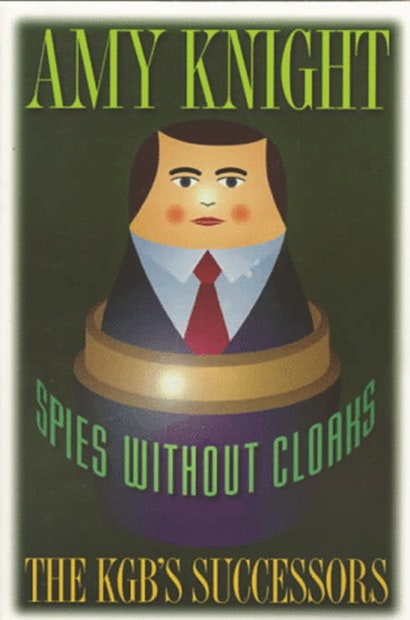This book offers a compelling and comprehensive account of what happened to the KGB when the Soviet Union collapsed and the world’s most powerful and dangerous secret police organization was uncloaked. As Amy Knight shows, the KGB was renamed and reorganized several times after it was officially disbanded in December 1991—but it was not reformed. Knight’s rich and lively narrative begins with the aborted August 1991 coup, led by KGB hard-liners, and takes us through the summer of 1995, when the Russian parliamentary elections were looming on the horizon. The failed coup attempt was a setback for the KGB because it led to demands from Russian democrats for a complete overhaul of the security services. As a result, the KGB’s leaders were fired, its staff reduced, and its functions dispersed among several agencies. Even the elite foreign intelligence service was subjected to budget cuts. But President Yeltsin was reluctant to press on with reforms of the security services, because he needed their support in his struggle against mounting political opposition. Indeed, by the spring of 1995, the security services had regained much of what they had lost in the wake of the August coup. Some observers were even saying that they had acquired more power and influence than the old KGB.
This story told by one of the foremost experts on the Soviet/Russian security services and enriched by face-to-face interviews with security professionals in Moscow, is crucial to understanding Russian politics in transition. It will fascinate scholars, policymakers, and general readers interested in the fate of the KGB.
"This is easily the best book on the former KGB to appear since the end of the cold war. Knight is a formidable researcher with an excellent reputation, which this work . . . does everything to confirm. For those who believe the Russian bear has been slain, this is a welcome reality check."—James Adams, The (London) Sunday Times
"A careful, detailed and grimly pessimistic account of the fate of the KGB since the Soviet empire collapsed in 1991. Despite changes of name, organization, and personnel, Knight contends that, in the absence of solid democratic traditions, the essence of the KGB continues as before."—Leonard Bushkoff, The Christian Science Monitor
"What is documented by Amy Knight's meticulous study. . . is that `free Russia' is even more of a fiction than most of us might have supposed. . . . the KGB's heirs appear now to be even more vigorous than was their parent."—Anthony Olcott, Washington Post Book World
"Persuasive evidence that Boris Yeltsin, since becoming president of Russia, may have found the KGB far too useful an organization to have tried seriously to constrain it. . . .the most scholarly and dispassionate assessment yet available of a question critical to the future of Russia."—Kirkus Reviews
"Amy Knight's important new study . . . the prognosis for democracy in Russia . . . isn't good. . . . Her account . . . is the most impressive and thorough we have."—Joseph Finder, The New York Times Book Review
"This is easily the best book on the former KGB to appear since the end of the cold war. Knight is a formidable researcher with an excellent reputation."—James Adams, The Sunday Times
"As a close analysis of the situation and what it portends for human rights and the possible renewal of Russian expansionism, Knight's volume will acutely interest close followers of Russian politics."—Booklist
"Most of the work of the KGB's successors is, inevitably, shrouded in official secrecy. Spies Without Cloaks is, however, an essential guide to what is so far known about them."—Christopher Andrew, Sunday Telegraph
"Amy Knight has provided us with another invaluable and scholarly contribution to modern espionage history. I was greatly stimulated and enlightened by this book."—John le Carré
"Amy Knight, whose considerable reputation as an analysts of Soviet security developments precedes her, has produced a comprehensive and major contribution to our understanding of the politics of transition in post-Soviet Russia."—Robert Sharlet, Union College

